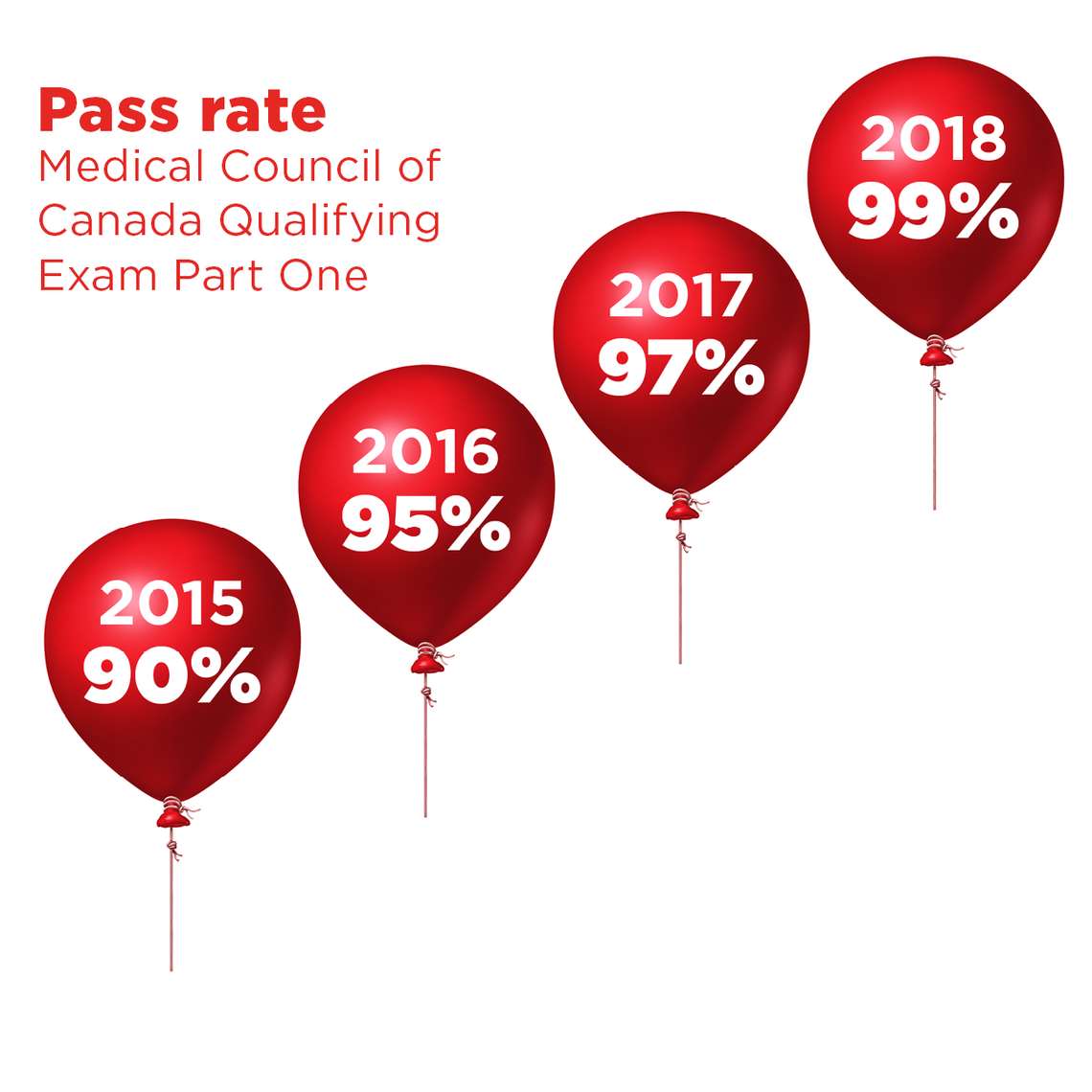Oct. 22, 2018
Success | program paying dividends for students

On the journey to become a doctor, all undergraduate medical students in the country are required to pass a test of their medical knowledge and decision-making. It’s known as the Medical Council of Canada Qualifying Exam Part I and it is written at the end of medical school, just before residency.
Three years ago, the Medical Council increased the score needed to pass the exam and an unusually high number of medical students across the country were not successful. At the Cumming School of Medicine (CSM), 10 per cent of the medical students did not pass, the highest failure rate in years.
“We knew we had to do better for our students,” says Dr. Sylvain Coderre, MD, associate dean of Undergraduate Medical Education (UME). “We started investigating our UME program to see where we could improve our teaching strategies and supports for students.”
At the same time as this was happening, Dr. Janeve Desy, MD’11, was honing in on a medical education thesis topic for a Masters of Education in Health Professions program at Johns Hopkins University in Baltimore, Maryland.
“I was inspired by what Dr. Coderre wanted to do to improve the UME program and hoped through my thesis to build on the work he and his team had started,” says Desy. “We started looking at two streams of support: mentorship, and strategies to improve study skills.”
To determine where the UME program needed improvement, the team looked back on students’ performance during their first and second year of medical school. They identified a pattern that seemed to predict which students could be at risk of failing the national exam.
“Interestingly, all of the students we identified to be academically at risk were passing their exams. On the surface, they seemed to be on track for success, yet the pattern was showing us that one year later they were likely to fail the MCC Part One,” says Desy.
The team contacted the students to share the findings. The students predicted to be academically at risk were then offered a spot in the new SUCCESS program (the full name is Supplemental UME Course for Competence in Educational Skills and Strategies) that would pair them with a mentor during the final year of medical school. The mentors are faculty members who volunteer to work with a student for a few months or the entire year, depending on the individual student’s needs. The mentors receive specialized training and can access ongoing support to enhance their mentorship skills.
The team also created a review course just before the exam. Experts on a range of topics walk the students through clinical decision-making questions where they can apply the knowledge they have gained throughout their medical education.
Exam scores for the CSM students have improved in each of the two years the SUCCESS program has been running. In 2018, the pass score was set at 226. The national mean was 262 and CSM students scored 266. The national pass rate on the exam was 95 percent, with 99 percent of the CSM students passing.
The results led the SUCCESS program to expand to now include first-year medical students, with early mentorship being introduced at the first sign of borderline examination results.




